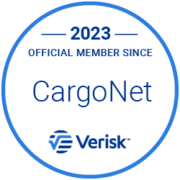The Challenge of Growth Through Acquisition
Mergers and acquisitions occur for several reasons, but chief among them is revenue growth. When one company merges with or acquires another, it can be difficult for both parties involved. It’s a time when potential risks and challenges that weren’t anticipated before are uncovered, and difficult decisions need to be made to solidify the future of the new entity.
One area that businesses need to create some synergy is supply chain management. Of all the business functions within two companies, combining different supply chains creates numerous complications, but it also creates interesting opportunities that can increase revenues and reduce expenses. If a business fails to adequately plan for the supply chain synergies and redundancies an acquisition or merger creates, it can contribute to or even cause the failure of the initiative as a whole.
This blog will examine how to prepare your supply chain before a merger or acquisition, how a merger can solve logistics issues, and how a specialized supply chain manager can be an important asset during this crucial time.
The Difference Between a Merger and an Acquisition
First, it’s important to understand that mergers and acquisitions are two different types of transactions. A merger is the transfer or consolidation of two or more companies into a new entity. It’s the combination of employees, materials, financial resources, assets, and technologies. The involved parties merge their collective resources, creating a new organization that takes all of their competitive advantages into account to conquer new markets.
An acquisition is when one company takes over and assimilates another. This is typically done when one company has developed a strategic advantage, such as better technology or a specific product, or they operate in a specific location.
The goals of each are mostly the same: to consolidate existing supply chains, reduce costs, and optimize logistics in every corner of the business.
The Complexity of a Merger
When a merger or acquisition is announced, it’s often up to the supply chain managers to make operational efficiencies a reality. However, a better way to approach mergers and acquisitions is to see them as an opportunity for supply chain managers to design and implement a new supply chain.
A merger involves the seamless coordination of two unique, complex operations that often include duplicate assets, overlapping products, and different suppliers and customers. This isn’t an easy task, and supply chain managers must turn to technology to help them mitigate risk and turn two separate supply chains into one that’s efficient and cost effective.
How a Supply Chain Specialist Helps Your Organization Through a Merger or Acquisition
It helps to remember that an optimized supply chain is how your business delivers what your customers want while spending the least amount of money doing it. This is the perfect time to work with a dedicated supply chain manager, like Sheer Logistics, that has worked with companies through mergers and acquisitions to consolidate their logistics procedures and supply chains. We’ll discuss your business priorities with you and share insights that strengthen your decision-making at a critical time.
At Sheer, we use data-driven analysis to optimize every aspect of your current entity and the new entity that’s created once the merger is complete. Sheer offers merging companies two very important advantages:
Transportation Management Software– Data analysis is an important key to unlocking the potential that two entities can create when combined.
Supply Chain Consulting – We provide a roadmap to success for each client. Every company—and the challenges it faces—is completely different, which is why our consulting partners get every ounce of our business savvy.
How does freight management make your company better? Our complete guide to freight management is your introduction to what an experienced logistics provider can deliver, including lower costs, intelligent shipping, and flexible supply chains that support your entire organization.
If your business is in the process of merging with or acquiring a company, or if you’re in the early planning stages of a potential transaction, reach out to us for a free consultation and let us show you the value that our experience can deliver.


